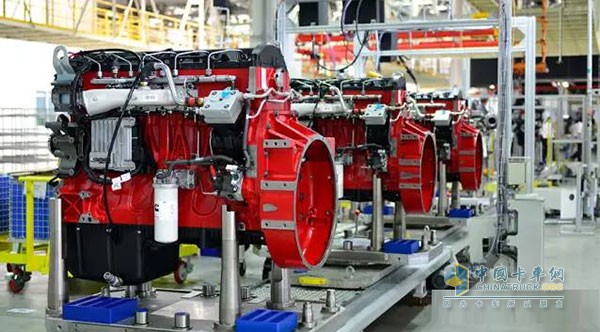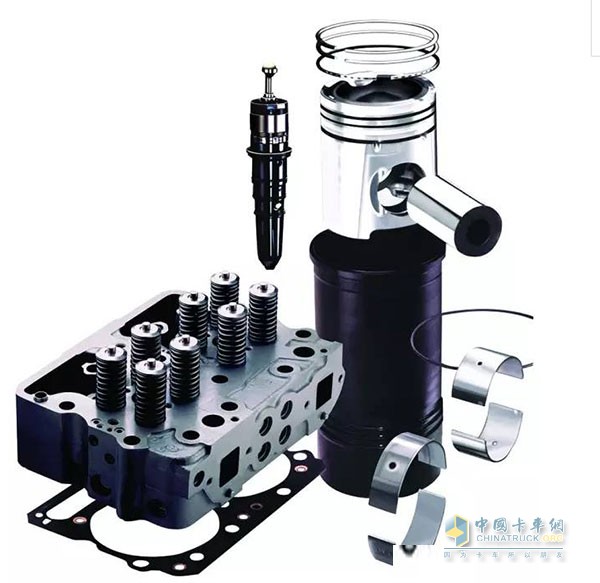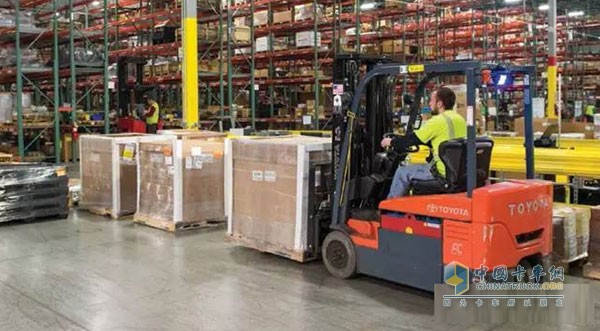Cummins has been a leader in the key indicators of sustainable development. However, for Cummins, there is no end to green development. Recently, Cummins has established new sustainable development goals by improving the efficiency of the use of its products and the logistics efficiency of its own operations.

The Cummins engine on the production line can meet the most stringent emission regulations in the world while improving fuel efficiency.
“In the future, Cummins will continue to be a catalyst and booster for environmental action,†said Tom Linebarger, Cummins Chairman and CEO. “This is what our company’s vision and mission has advocated. It is also ours. The cornerstone of business success. Our creative and dynamic global employees work together to achieve our environmental ideals."
Based on the environmental protection targets for waste, water resources and energy utilization that Cummins released in 2014, Cummins further expanded and improved the sustainable development goals:
In-use product goals: Working together with customers to increase the efficiency of existing products has achieved the goal of reducing 3.5 million tons of carbon dioxide and saving 350 million gallons of fuel every year by 2020.
In 2014, Cummins produced a total of 1.1 million engines worldwide, including joint ventures. 99% of the carbon footprint of the engine during use is derived from CO2 emissions. In order to better reduce the production of carbon dioxide from the source, Cummins has worked with customers since 2004 to achieve more than 100 fuel efficiency improvement projects through a series of tools such as Six Sigma. These projects have saved customers 100 million gallons of fuel and reduced more than 1 million tons of carbon dioxide emissions.
The Cummins engine on the production line can meet the most stringent emission regulations in the world while improving fuel efficiency.
These include optimizing vehicle specifications and engine operating parameters, special training for fleets and drivers, and engine-to-vehicle match optimization.

Cummins's efficient fuel system helps customers reduce fuel consumption and improve efficiency
Market research shows that fuel efficiency is one of the most important factors for consumers to purchase fuel-consuming equipment. The fuel efficiency improvement project that works with users can reduce the use of greenhouse gas emissions while also reducing the use cost for users. In particular, Cummins Engine's excellent reliability and durability, its full life cycle can reach more than 1 million miles, which makes the engine to achieve greater fuel efficiency and environmental benefits.
Logistics Objectives: Use the most efficient transportation method within the Cummins network to achieve a 10% reduction in CO2 emissions per kilogram by 2020.
Transportation vehicles are an important factor influencing the entire supply chain in the logistics process. The core of the transportation, logistics and warehousing strategy is how to change the transportation method of Cummins raw materials and finished products in the supply chain and improve the transportation efficiency. This is also a key point in Cummins' global environmental sustainability plan.

Cummins Logistics Warehouse Center in efficient operation
In 2014, Cummins invested nearly 442 million U.S. dollars in logistics within the company's network. The company began implementing transport network optimization projects as an important part of Cummins' overall supply chain transformation. Cummins is using a global traffic management system to improve visualization and speed of shipments, while also being able to better analyze the management process. Formulating a new target for reducing CO2 emissions will not only enable Cummins to achieve its goal in this system, but also accelerate and expand its global impact.
This goal mainly focuses on the freight from the supplier to the Cummins plant and the freight inside Cummins. The transportation management system will help Cummins consolidate different cargoes at the same destination and reduce the trips generated during the transportation of the goods. The company will also reduce the number of "unsaturated" trucks on the road.
This management system also helps Cummins logistics professionals choose the most efficient way - whether it is road, rail or ship to transport the goods. This will not only help the company save $40-64 million in transportation costs per year, but also significantly reduce the emission of greenhouse gases and pollutants through improved transportation efficiency.
Water Cooling Rolls,Water Cooled Rollers,Water Cooling Rolls Back,Water Cooled Roll
Jiangsu Kinuo Furnace Roller Co., Ltd. , https://www.jskinuoroller.com